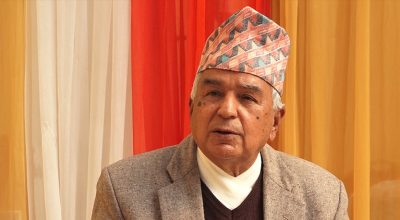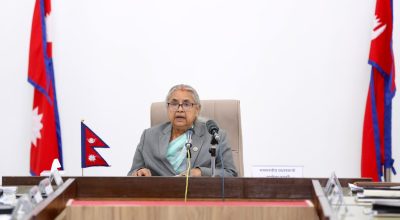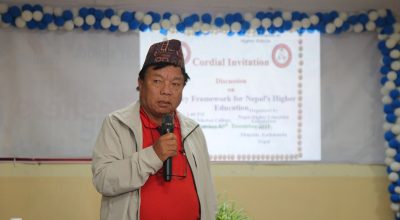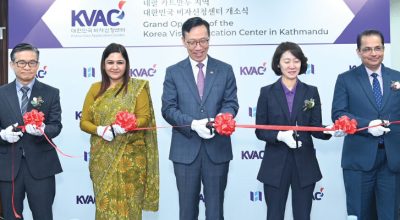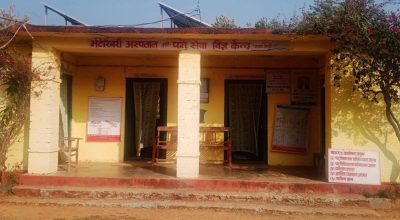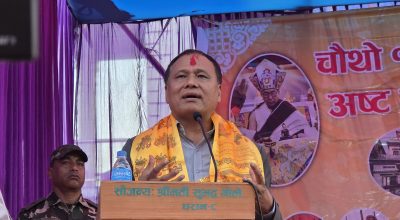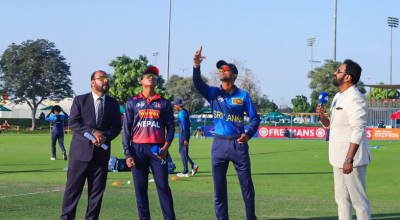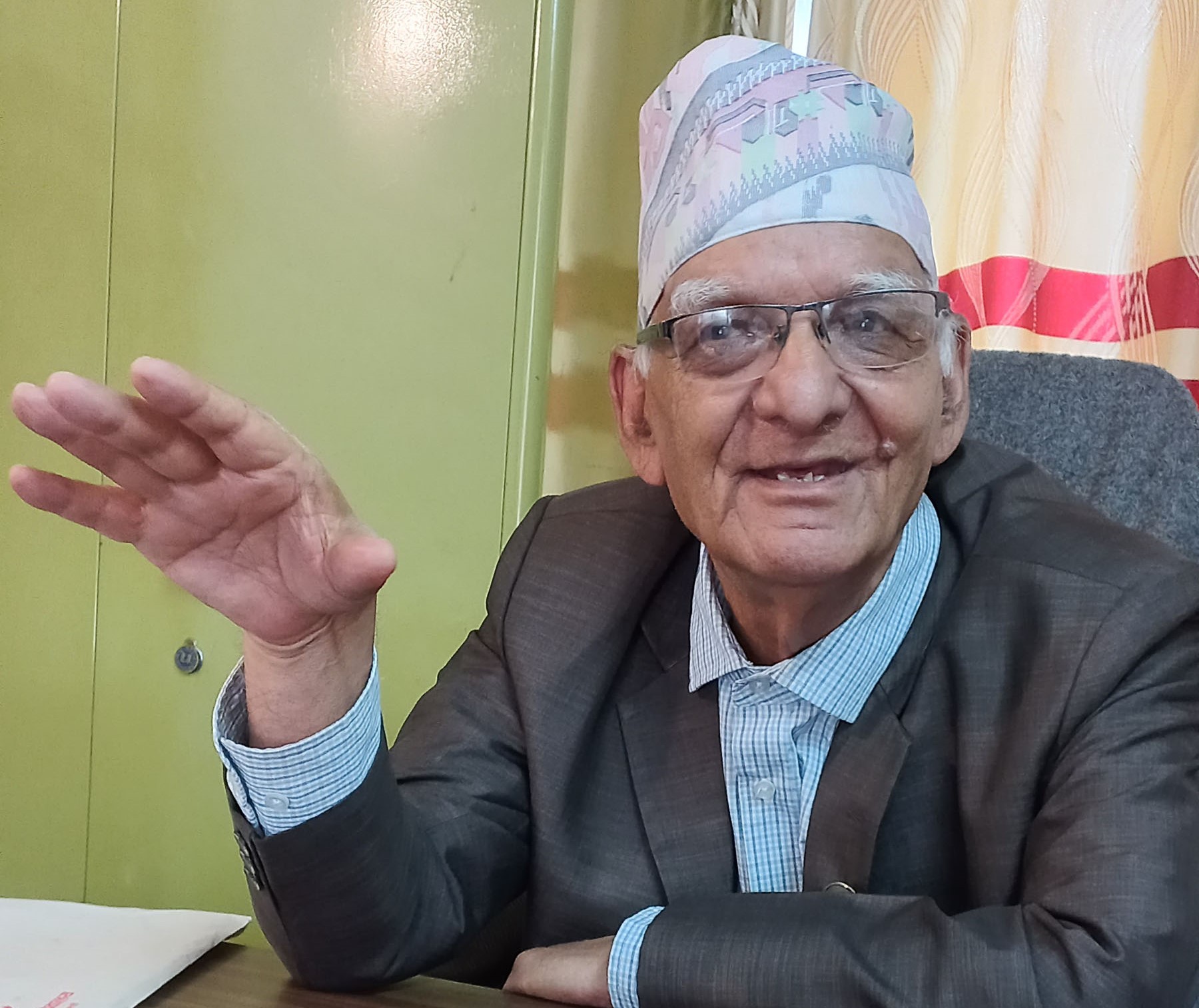
Kathmandu, Sept 30: Rastriya Janamorcha’s Chairperson Chitra Bahadur KC asserted the policy making is weak and its implementation weaker when it comes to curbing corruption and ensuring good-governance.
Talking to the Rastriya Samachar Samiti (RSS) today, leader KC said the decisions made by the political parties, government, CIAA and office of attorney had posed a challenge in maintaining good-governance.
“There’s weakness on the part of policy making while the implementation side even weaker. The incident of the anti-graft body’s officials’ alleged involvement in bargaining for money to influence any case had came out in the past. The public attorney withdrew the case of those in the name of policy makers,” reminded KC.
Stating that massive disappointment and frustration prevailed among the public towards the current governance system, government, responsible leaders and policy makers, the former Deputy Prime Minister viewed that government, political leaders and parliamentarians should act responsibly to restore public trust.
The octogenarian leader analyzed that public were keeping an eye on the public prosecutor’s course of action in many cases and the fact that not lodging case against those involved in heinous crimes and major wrongdoing or withdrawing the case against those accused in such cases had raised a question about existence of the rule of law in the country.
According to him, some of our wrong practices had spread the sentiments of despair and hopelessness among the people. He however said our country is blessed with a myriad of cultures, customs, heritages, geographical diversity and bounty of natural resources.
He opined that the tendency of teaching English to the children and encouraging them to follow western style of fashion and food culture had weakened nationalism.
Expressing his concern over the increasing hopelessness among the youths and students in the country and growing brain drain, he blamed that youths were being brainwashed into seeking greener pasture abroad by the education consultancies to promote their business and this tendency was leading the Nepali society into degradation.
Chairperson KC, however, suggested the Nepali youths to opt for foreign study or employment after preparing meticulously in terms of language, laws and cultures of the host country and equipping oneself with necessary skills.
He was concerned that the educational institutions in the country were not able to provide the kind of education that instills the sense of patriotism among the students.
On a different note, Chairperson KC expressed dismay over the situation of having to import everything to the country from principles and values to essential commodities. Similarly, he argued that all national industries and factories in the country were risked due to liberalization.
Stating that it was our common responsibility to build nation and ensure changes and protect it, KC spoke of the need for us to be more responsible towards it.






